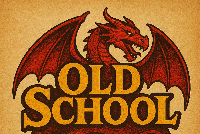
I wasn't sure where to post this, as this is really more about group dynamic than an issue or question about roll20. I'm a DM for a group of four players in D&D 4e, and we've been playing around 6 sessions and got up to level 3. Half-Orc Rogue Deva Wizard Human Paladin Kalasthar Cleric They've been morally ambiguous during the entire campaign, the cleric especially, e.g started to attack, rob, murder and mutilate a faction as soon as they got gold in their pockets, reinforced by observing a few rotten apples. Most of their quests were about reinforcing the resistance, riling up this faction and getting a civil war started. Nearing the end of their quest they were asked to dispose of a necromancer, whom they've met before - but not face to face. After an exchange of a few words, he started to read their contract out loud, and tells them it was one of the best investments he ever made. He then asks the party to join him in the coming civil war, in exchange for whatever they desire - money, power, land or even an (undead) army. This was what my campaign was all about, not to have a big bad death knight, but a scheming necromancer who was working behind the scenes. The cleric jumps at this, and the rogue and wizard actually agrees with her. They want to join him. The only one who doesn't is the Paladin, who hurls a bolt at the necromancer which gets this response: I corrupted them, it all led up to this moment, I succeeded. ... and I'm not happy it. TL:DR My players turned bad, are planning to join villain and turn on the Paladin. What do?


















